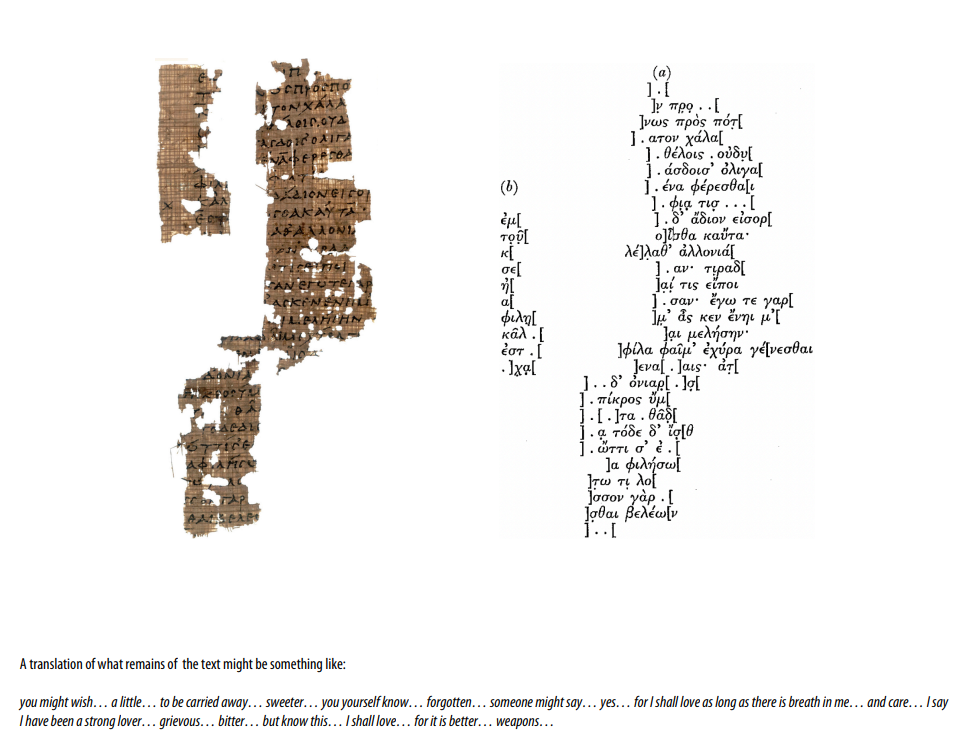created, & modified, =this.modified
Why I’m reading
Background read. Picking pieces, to accompany Eros The Bittersweet by Anne Carson and seeing Tonight I’ve Watched and
On Sappho
Sappho was musician. Her poetry is lyric, composed to be sun to lyre.
Writers ascribe three inventions to her
- the plectron – an instrument for picking the lyre
- the pektis – a particular type of lyre
- mixolydian mode - an emotional mode used by tragic poets who learned it from Sappho. (this appears to be different than modern mixolydian) All her must is lost. (This is extremely tantalizing to me.)
On a papyrus roll the text is written in columns, without word division, punctuation or lineation. To read such a text is hard even when it comes to us in its entirety and most papyri don’t. Of the nine books of lyrics that Sappho is said to have composed, one poem has survived complete. All the rest are fragments
On Fragments, while researching Pektis
Not enough of this poem is preserved for the reader to get an overall idea of its subject matter – not one line is complete, and not all lines contain even a single complete word -and what remains has the quality of disjunct glimpses into intimate secrets, perhaps as if intermittently overheard.
It seems like we found Sappho fragments because they were being applied to Egyptian mummies.
The poem which is now her fourth to survive had a tortuous and not unromantic discovery. It was found in the cartonnage of an Egyptian mummy, the flexible layer of fibre or papyrus which was moulded while wet into a plaster-like surface around the irregular parts of a mummified wrapped body, so that motifs could be painted on.
Thought
Musicality is accurate, reading these fragments I’m reminded of Burial lyrics or sample-based lyrics.
Translating
In translating I tried to put down all that can be read of each poem in the plainest language I could find, using where possible the same order of words and thoughts as Sappho did. I like to think that, the more I stand out of the way, the more Sappho shows through. This is an amiable fantasy (transparency of self) within which most translators labor. If light appears
rel:What We Talk About When We Talk About Translation
Fragments exist in two kinds
- papyrus
- citations from other authors
I have used a single square bracket to give an impression of missing matter, so that
]or[indicates destroyed papyrus or the presence of letters not quite legible somewhere in the line. It is not the case that every gap or illegibility is specifically indicated: this would render the page a blizzard of marks and inhibit reading.
The difference of

to

In translating such stranded verse I have sometimes manipulated its spacing on the page, to restore a hint of musicality or suggest syntactic motion.
Digression Sparked on Reading/Musicality and Frets
NOTE
rel:Survey of Text Etymology, Connections to Fiber, Body The Art of Syntax by Ellen Bryant Voigt It’s really some musicality that is because of the limits of the eye here? If I could parse non-sequentially or read differently, would the distance traveled affect the word sounds. The distance the eye travels between words, in some nonstandard way, equates to music.If this is true, then does the sentence that is a single line, have a music to it as well? It can be even a further distance the eye travels, or lingering/processing at different spots. Maybe, it’s just that it is different where the music comes from? In that I am so conditioned to the restart of a line-break, that I don’t perceive it, but the above is unconventional so I do. It’s musical disruption.
Still, though text is presented linearly, it isn’t read like this.
like how – em dash, provides space and pause, literally and visually. I also know and am conditioned to how this soundless symbol is interpreted.
In thinking of the eye, also the hands: I was looking at my hands, and the guitar strings. The sound is so tied to the instrument, because of its partial friendliness to the hands. Like, in a lesson on scales I heard the instructor talk about how fretting the whole string is unnecessary, and taxing, for a particular chord and only a subsection of them would be necessary to press.
I thought of this, in the sense of fatigue, limits of the hands and music. If my hand was some kind of dexterous, articulating putty I could fret the whole anything. I could lay my hand over the fretboard, and warp my limb. Even more simply, if my hand were stronger, or finger longer I might fret the whole string easily. Would a new instrument arise?
Do we really need the guitar to be some optimized tool? Do we deliberately let it be one of those Difficult Devices for prestige and creativity?
A note discovered here on fret etymology - the “state of worry’ seems to be related to “devour, consume - to eat.”
In art and architecture the sense is, a repeating ornamental design of interlaced vertical and horizontal lines, such as the Greek key pattern. From frete trelliswork.
ridge on the fingerboard of a guitar,” c. 1500, of unknown origin, possibly from another sense of Old French frete “ring, ferule.” Compare Middle English fret “a tie or lace” (early 14c.), freten (v.) “to bind, fasten” (mid-14c.).
Cool connection -
rel:Gimmal, Fede Ring Theory of the Derive with derive/river/rivet
The Intention of the Translator
The Task of the translator consists in finding that intended effect upon the language into which he is translating which produces in it the echo of the original… Unlike a work of literature, translation does not find itself in the center of the language forest but on the outside; it calls into it without entering, aiming at that single spot where the echo is able to give, in its own language, the reverberation of the work in the alien one.
Thought
Echo, Vibe, Vibration… Echo as new source of study? Maybe overlap with Survey of Vandal, Fake and Replica
edit: done.
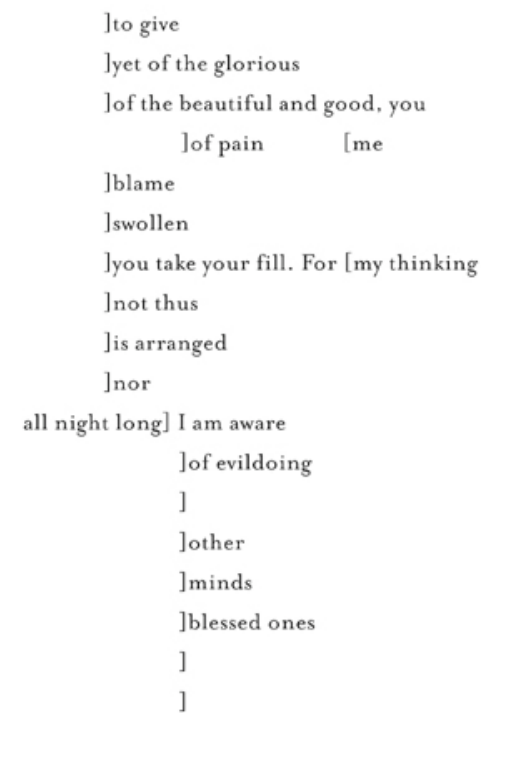
Thought
The fracture of these, makes the poems poems anew.
rel:Found PoetryI accidentally paste a screenshot of this document as I write it. I’ll leave it like this as another layer of something.
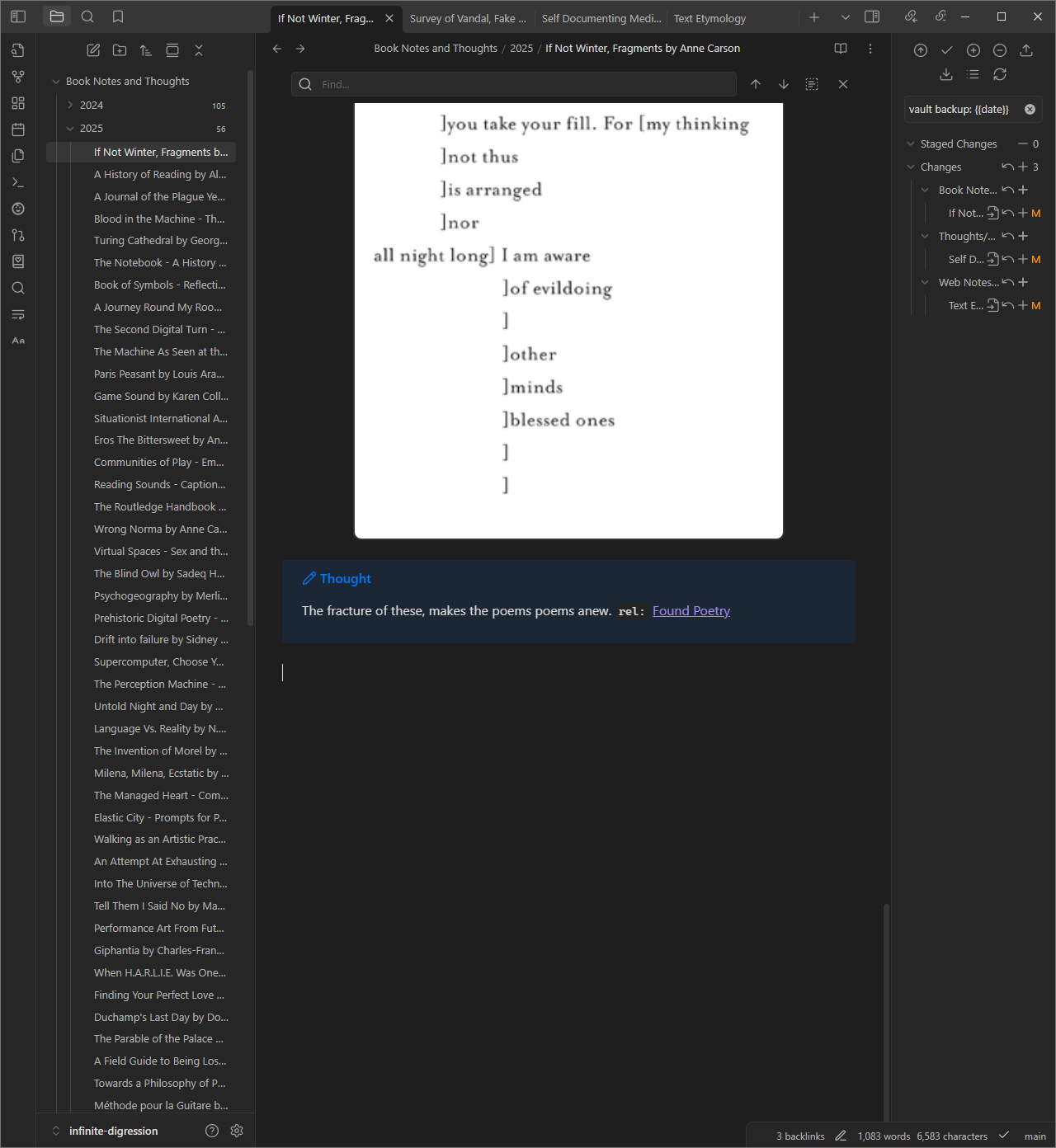
lady of gold arms doom
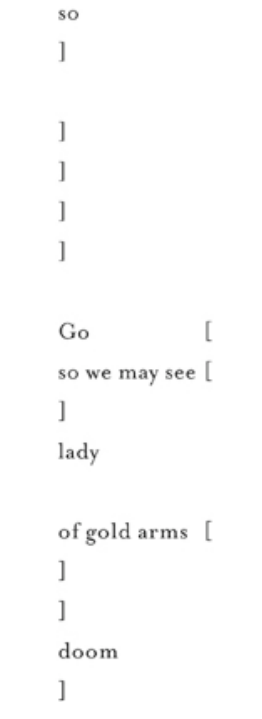
Anactoria
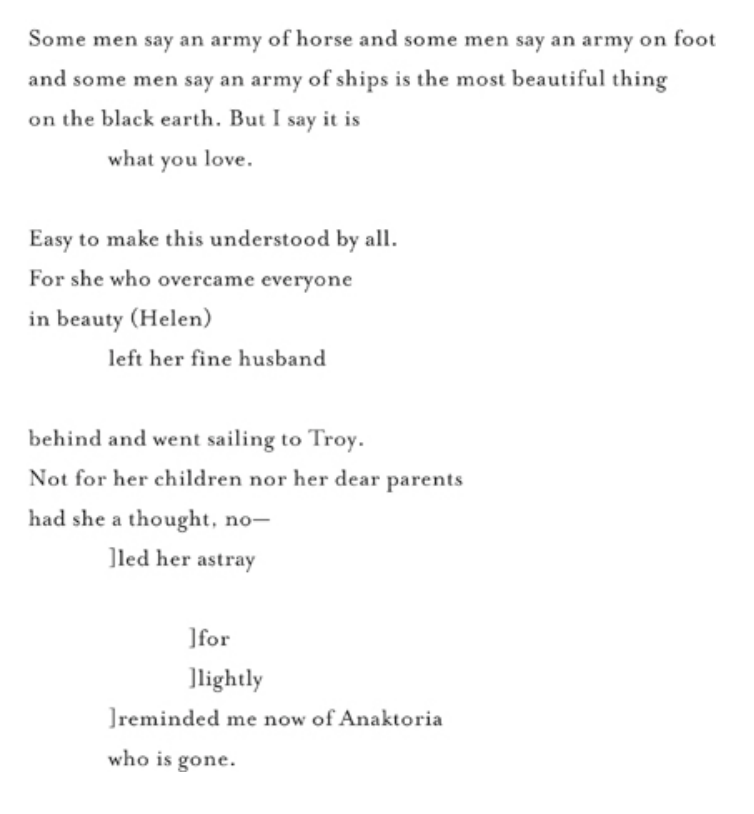
If not, winter
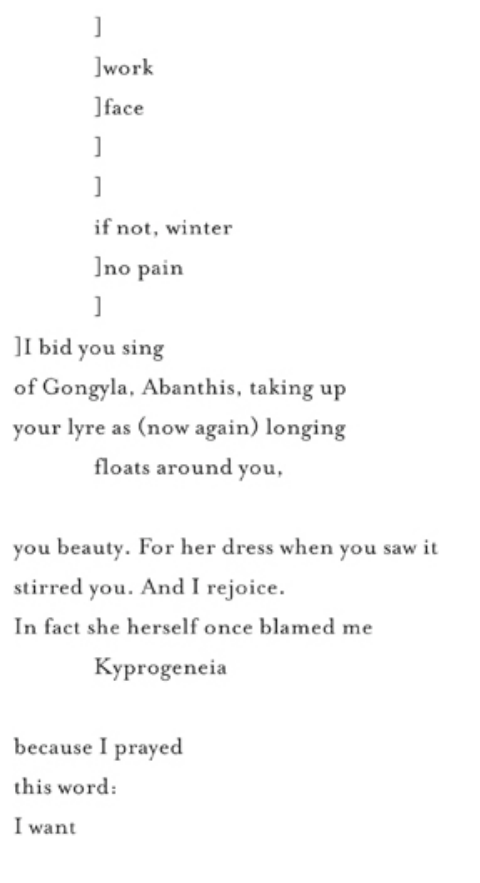
Thought
Honestly, the majority of these are good. It’s tough to be selective in documentation.
Looks like code.
]
]you will remember
]for we in our youth
did these things
yes many beautiful things
]
]
]
]
]we live
]
the opposite
]
daring
]
]
]
star around the beautiful moon
hide back their luminous form
whenever all full she shines
on the earth
silvery
For the man who is beautiful is beautiful to see
but the good man will at once also beautiful be.
I would not think to touch the sky with two arms.
]
]
]to you
]horse
]
]
]
I simply want to be dead.
Weeping she left me
with many tears and said this:
Oh how badly things have turned out for us.
Sappho, I swear, against my will I leave you.
And I answered her:
Rejoice, go and
remember me. For you know how we cherished you.
But if not, I want
to remind you
]and beautiful times we had.
For many crowns of violets
and roses
]at my side you put on
and many woven garlands
made of flowers
around your soft throat.
no grove [ ] no dance
] no sound
[
but I am not someone who likes to wound
rather I have a quiet mind
Moon has set
and Pleiades: middle
night, the hour goes by,
alone I lie.

